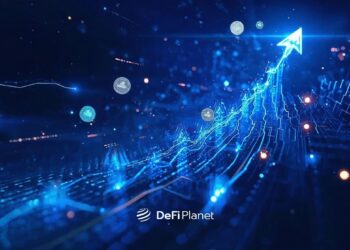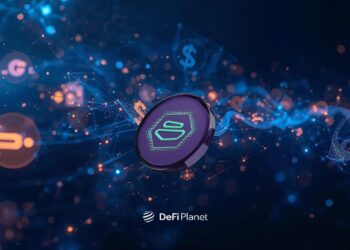NFTs and, more recently, AI, have burst onto the scene in the last few years and reshaped our understanding of what’s achievable.
NFTs have led us to reconsider the concept of value and revolutionized digital ownership. Meanwhile, Artificial Intelligence (AI) has pushed the boundaries of what’s attainable with machines. However, the most exciting development lies in the fusion of these two technologies.
AI-generated NFTs are becoming a significant trend, following the explosion in the use of generative AI in the past year. This technology has been applied in numerous industries, revitalizing old technologies and creating new and improved user experiences.
With the assistance of AI, individuals can craft unique artworks and convert them into NFTs, which can be minted, bought, sold, and traded on the blockchain.
While NFTs may have lost some of their public appeal and AI is currently in vogue, combining both technologies could potentially rejuvenate interest in the former and open new avenues for the latter.
Let’s explore the integration of AI into the NFT marketplace and how it’s reshaping the status quo.
Innovative Ways AI is Impacting the NFT Ecosystem

The integration of AI affects almost every aspect of an NFT lifecycle. It creates dynamic digital ecosystems that ultimately lead to a new way of interacting with the digital world.
Here are some ways AI introduces a new way of doing things in the NFT marketplace.
Creation
Creativity has always been central to content creation, but it’s often a slow process for humans. However, nowadays, AI-powered algorithms are being used to speed up the process and expand creative possibilities. Artists can also use this technology to input images, prompts, or sounds and work together with the AI system to create something completely new. This is especially observed in the NFT space.
These algorithms can analyze extensive collections of existing NFTs using machine-learning techniques, allowing them to understand different artistic styles and approaches. With this knowledge, AI can produce NFTs that mimic specific styles or combine elements from various styles to create unique and visually appealing pieces.
For instance, XANA, an AI-powered NFT collection of 10,000 original avatars with a distinctive Japanese anime aesthetic, is already doing something along these lines. Inspired by the film Blade Runner 2049, XANA is designed to serve as personalized AI companions and meet the growing demand for customized avatars within the metaverse.
Also, Appy Pie is one of the numerous AI-NFT generators where people can make digital art into NFTs without needing to code. With the platform, users can create up to 1,000 NFT collections, which is a great way for artists and creators to share their work with more people.
Notably, the Canadian emo band Silverstein achieved six figures in revenue from ‘Fake Feelings,‘ a 1,000-song album created using AI and sold as an NFT on the blockchain to fans.
:format(webp)/cloudfront-us-east-1.images.arcpublishing.com/coindesk/4GTMBRO4LRCVNBCNJWI6SDWDZA.jpg)
Authentication
A major concern in the NFT space is ensuring the authenticity of digital assets. AI algorithms help detect fraud and verify authenticity by analyzing metadata, images, and blockchain data. They identify potential fake or altered NFTs, preserving marketplace integrity and trust.
AI systems can verify NFT ownership history on the blockchain, ensuring a secure and transparent platform for collectors. AI’s data analysis makes it easier to spot fraud and assures collectors that the NFTs they buy are genuine, fostering confidence in the marketplace.
Discovery
NFTs marketplaces are always massive, and presenting NFTs in a way that maximizes their discovery is a very tricky endeavour.
AI integration solves this problem on all fronts. It can boost artists’ visibility, enhance NFT marketplaces, and improve the overall experience for the buyers.
Buyers and collectors can use AI to analyze what data is available to them and determine where good investments might be, making smarter choices about buying NFTs.
With AI, NFT marketplaces can analyze the vast troves of data they generate, predict buying trends, anticipate user preferences and what new art styles might become popular. This information would help them present tailored suggestions to their users.
Similarly, AI’s ability to analyze trends and data opens up new opportunities for NFT creators and artists. AI algorithms can suggest art based on user preferences, making it easier to browse and buy. This ensures the artists are linked to potential buyers and not just anyone.
Pricing
Assessing the worth of NFTs can be difficult since art and digital collectibles are subjective.
AI, using machine learning, can offer precise price predictions based on data. The algorithms would analyze factors like the artist’s reputation, past sales, rarity, and current market trends to determine a more objective value for an NFT. This AI-driven approach promotes transparency and efficiency and reduces reliance on subjective judgments. It results in a clearer view of fair values for NFTs for market participants.
For example, Bybit released a free AI trading assistant that gives people insights from market data. The tool combines AI’s capabilities with Bybit’s data to allow users to access real-time market analysis and answers in various languages. It also offers product recommendations based on percentage chances, making it easier for users to make informed decisions.
Challenges Associated with Integrating AI and NFT
This exciting combination of two novel technologies is not without faults. AI, in particular, is still in its early stages, and it carries a set of issues that impact its effectiveness.
Here are some significant problems associated with the integration of AI into the NFT marketplace:
Copyright and Plagiarism Concerns
As AI-generated NFTs gain popularity, concerns surrounding copyright and plagiarism have emerged as a pressing issue. Utilizing copyrighted material for training AI systems can inadvertently lead to copyright violations, potentially resulting in legal consequences for participants.
Moreover, the legal landscape in this domain is currently evolving and somewhat unclear. While new regulations may be introduced to address these concerns, participants in the market, including artists, collectors, and sellers, must stay informed about their legal responsibilities and remain vigilant about any regulatory changes that may arise.
Shift in Consumer Perception
The introduction of AI into the art world may alter how people perceive authenticity and emotional connections. Some collectors and enthusiasts may prioritize art created by humans, which could influence the demand and value of AI-generated NFTs.
Market Manipulation
Regrettably, there are individuals who misuse AI to manipulate the NFT market. For instance, some may employ AI to artificially inflate prices or disseminate false information to create fear, uncertainty, and doubt. These actions unfairly benefit specific investors and contribute to a volatile NFT market with unpredictable price fluctuations.
Such activities can significantly harm the market’s reputation and create barriers for new participants seeking to enter the market.
In Conclusion,
Predicting the extent of the impact of AI on the development of NFT technology is quite a difficult thing to do. Both AI and NFTs are relatively new technologies, and the complete scope of their utility is still uncertain.
However, one thing is clear: integrating AI into the NFT marketplace will lead to true decentralization, the goal of all blockchain-based technologies.
With AI, the need for central authorities to create NFTs is removed or reduced to the barest minimum. The artists, collectors, buyers, and sellers will all have true ownership and freedom to do as they please with their assets. And together, they create a space where innovation and individual empowerment come together.
In essence, the combination of AI and NFTs isn’t just tech progress – it shows how new ideas can change how we use the digital world.
Disclaimer: This article is intended solely for informational purposes and should not be considered trading or investment advice. Nothing herein should be construed as financial, legal, or tax advice. Trading or investing in cryptocurrencies carries a considerable risk of financial loss. Always conduct due diligence.
If you would like to read more articles (news reports, market analyses) like this, visit DeFi Planet and follow us on Twitter, LinkedIn, Facebook, Instagram, and CoinMarketCap Community.
“Take control of your crypto portfolio with MARKETS PRO, DeFi Planet’s suite of analytics tools.”





















